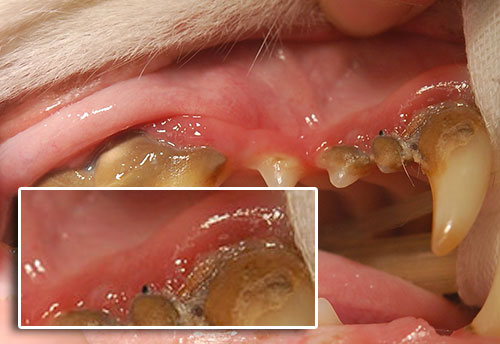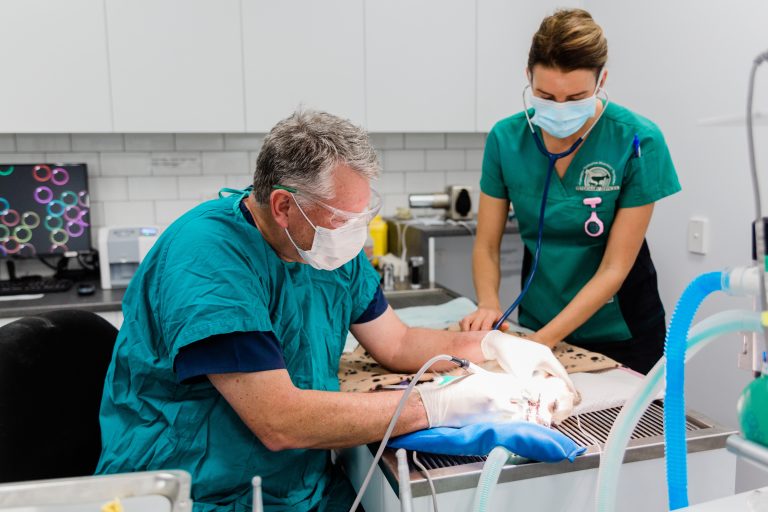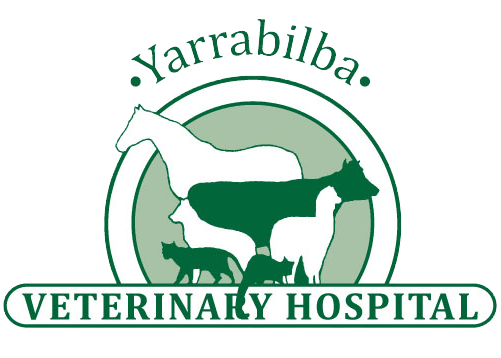Dentistry
Dental disease - also known as periodontal disease, gum disease, or oral disease - is one of the most common medical conditions seen by veterinarians. Over 80% of dogs and cats over 4 years of age have dental disease.
Initially your pet may not display any obvious signs of dental disease but as the plaque builds up on the surface of their teeth and then mineralises to form hard, chalky tartar, the gums become inflamed. Gingivitis (gum inflammation) if left untreated can cause chronic pain. Bacteria in the mouth causes further infection which can lead to gum recession, tooth loss and damage to the jaw bone.
Dogs and cats are adept at disguising pain, and many show no outward sign of discomfort despite severe dental problems. Often the first thing pet owners notice is their pet has bad breath or difficulty eating.

Tartar & Gum inflammation & recession
Can plaque and tartar be prevented?
Just like in humans, food particles and bacteria form plaque on the surface of the tooth. And as with humans regular brushing is the best prevention. If introduced to puppies & kittens early this is generally well accepted, older pets may take more time but with patience many will allow their teeth to be brushed – make sure you use a soft brush and special pet toothpaste, human toothpaste is not designed to be swallowed. For those that will not tolerate brushing there are specially designed veterinary diets, such as Hills t/d, that have been formulated to help clean their teeth as they chew. Other options include Oravet chews, and Plaque Off.
How is Dental Disease treated?
To effectively examine and clean your pets teeth they require a general anaesthetic. A thorough scale and polish is performed, using the same machines as your dentist uses for you, to remove the plaque and tartar from all tooth surfaces. X-rays may be required to assess the parts of the mouth that we cannot physically see. Any severely infected teeth may need to be extracted. Pets usually recover quickly although they may benefit from soft food for a few days after their procedure.



